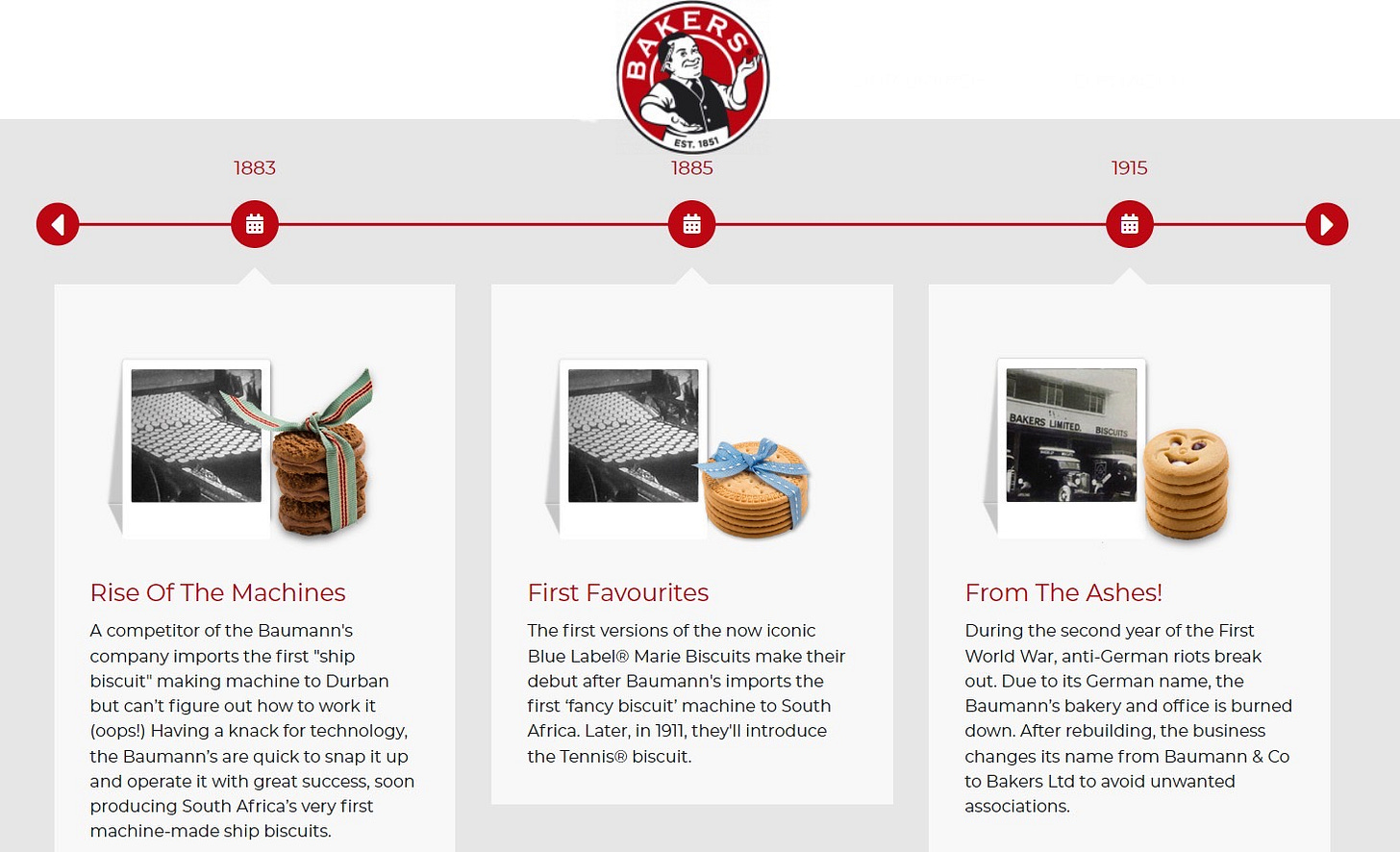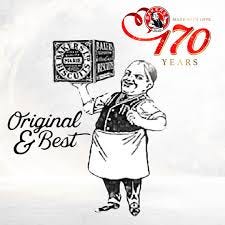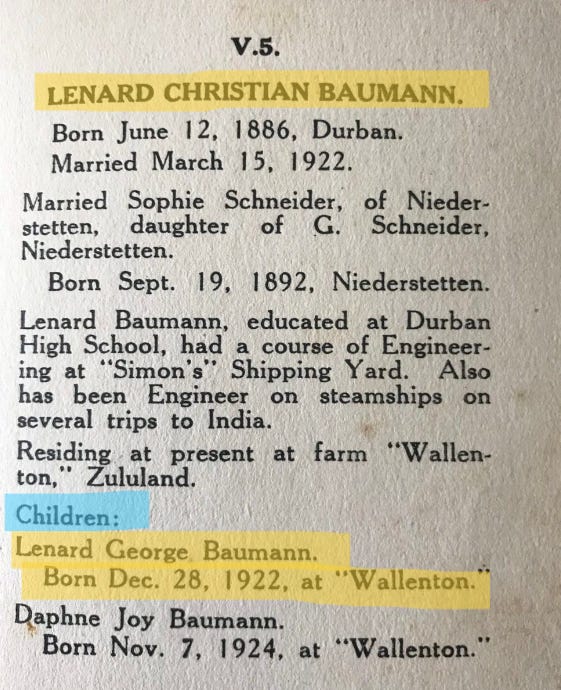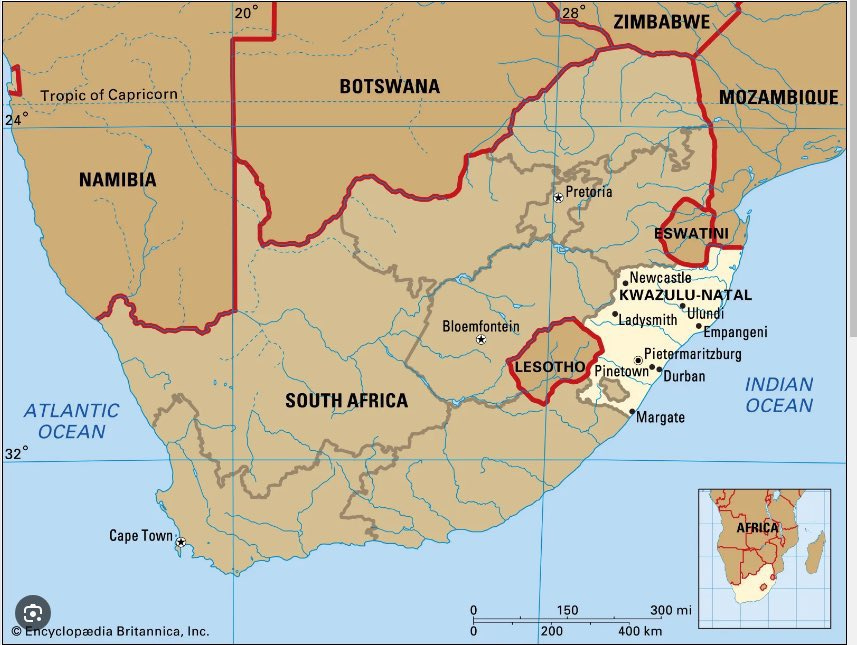Hi Money makers,
It’s your favorite content creator, TalkingCents.
In today’s article, I’ll discuss war, peacetime, and how a staple at sea gave rise to a South African dynasty. This is the story of how business tycoons and their families grew an empire.
Diet to Dividend
Before we dive into the main part of the article, I first need to take you back in time to make sense of how things unfolded.
This is how a staple for sailors led to great fortunes that continue to pay dividends today. A product that became part of every sailor’s diet is what led to the birth of a dynasty in South Africa.
Shaped at Sea
Hard tack was a long-lasting biscuit that sailors relied on as sustenance when perishable goods were scarce. These biscuits were used as rations for naval seamen during long sea voyages, making it a staple of every sailor’s diet.
Baumann's Biscuit Dynasty Begins
Johann Konrad Baumann ( Grandfather )
Johann Jakob Baumann ( Son)
The Story starts with the grandson below
John Frederick Baumann (Grandson) (1822-1908)
John Frederick Baumann was born in 1822 and was one of three sons, most likely the oldest. It is believed that his family thought he was dead after he left Germany.
He initially went to England before eventually settling in South Africa.


It is around 𝟭𝟴49…..
Baker, John (Johann) Frederick Baumann migrates from England and arrives in South Africa. He starts a grocery and bread bakery in the old British Colony of Natal (now KwaZulu-Natal).
He establishes his bakery, marking the beginning of his family’s dynasty.
𝗙𝗿𝗼𝗺 𝗵𝗲𝗿𝗲…..
John Frederick Baumann (J.F.B.) accidentally meets his nephew, John Michael Leonard Baumann (J.M.L.), while in England. It turns out that J.F.B.'s family thought he was dead, but to their surprise, he and his nephew reconnect.
(J.F.B.) explains that he has been living in South Africa for many years. He then invites his nephew ( J.M.L Baumann) and his wife to come to South Africa and work with him in his bakery business.
He manages to convince his nephew, John Michael Leonard Baumann (J.M.L.) to migrate to South Africa. His nephew then leaves London and arrives in Durban in 1880 and joins his uncle's bakery and grocery business.
𝗝𝘂𝘀𝘁 𝗮 𝗳𝗲𝘄 𝘆𝗲𝗮𝗿𝘀 𝗹𝗮𝘁𝗲𝗿……
The lease on their premise expires, and J. M. L. Baumann purchases the bakery operations from his uncle. The business passes from one Baumann to the next, from uncle to nephew.
𝟭𝟴𝟴𝟯 - 𝟭𝟴𝟵𝟱
He ( J.M.L.B ) then buys a site in Durban, at the corner of Brickhill Road and West Street. There he constructs a building and moves the bakery’s operations to the new address. He also goes on to buy a hand-operated biscuit machine from one of his struggling competitors.
This then allows J.M.L Baumann to produce South Africa’s first machine-made biscuits and eventually scale up to purchase more advanced machinery.
With this new machinery, J.M.L. goes on to produce ‘𝚏𝚊𝚗𝚌𝚢 𝚋𝚒𝚜𝚌𝚞𝚒𝚝𝚜’, such as ginger nuts and Marie biscuits.
In 1885, “The first versions of the now iconic Blue Label® Marie Biscuits make their debut after Baumann's imports the first ‘fancy biscuit’ machine to South Africa. Later, in 1911, they'll introduce the Tennis® biscuit”
𝗪𝗼𝗿𝗹𝗱 𝗪𝗮𝗿 𝟭 𝗸𝗶𝗰𝗸𝘀 𝗼𝗳𝗳
The company starts to falter due to the anti-German riots, which lead to the bakery and shop being burned to the ground. On top of this, there are massive supply disruptions across the country during the Great Depression.
𝗛𝗼𝘄𝗲𝘃𝗲𝗿, a couple of things worked out in their favor.
(I) The factory manages to survive the anti-German riots of 1915, mainly because it was producing biscuits for the army, so the factory was put under government protection to prevent further damage.
(II) The company's name changes from Baumann's (German) to 𝗕𝗮𝗸𝗲𝗿𝘀 𝗟𝗶𝗺𝗶𝘁𝗲𝗱, thus giving birth to the iconic brand we now know today.
Growing the Brand
Around the time World War I was ending, J.M.L Baumann's son, William, opens a Bakers factory in Cape Town, later expanding the company by opening a second factory, and then a third in East London.
The famous Baker’s mascot makes its first appearance on the packaging in 1923. It depicts an elderly man wearing an apron and holding a box of biscuits.
Generation to Generation
The family business has deep roots, connecting German heritage to a South African dynasty.
Each generation worked hard and contributed to the development of the product, the brand, and the company
The business continued from generation to generation, starting with the uncle (John Friedrich Baumann) to his nephew (John Michael Leonhard Baumann, (J.M.L), then from the nephew to his son (Lenard Christian Baumann), and finally to the nephew’s grandson (Lenard George Baumann) — the epitome of generational wealth
John Michael Leonhard Baumann (J.M.L)
John Michael Leonhard Baumann (J.M.L.) and his wife, Marie Kurtz, had ten children, four of whom died at birth. One of their sons, Lenard Christian Baumann, continued the family legacy by passing it on to his son, Lenard George Baumann, who recently passed away in 2024 at the age of 101.


Lenard George Baumann
Lenard George Baumann was born on a farm in Empangeni, KwaZulu-Natal, on December 28, 1922. He later became the managing director of the Bakers company in 1958 and then its chairman in 1971.
Growing Bakers
Lenard initially wasn't sure what he wanted to do with his life and considered becoming a baker. However, his grandfather encouraged him to pursue a career in business and study accounting, believing it would be more valuable in the future business world
He later inherited the company (Bakers) from his grandfather, John Michael Leonard Baumann. (J.M.L)
𝙃𝙞𝙨 𝙟𝙤𝙪𝙧𝙣𝙚𝙮 continues……
Lenard George Baumann continued to innovate the Bakers brand, leading the company into its next phase of growth. During his tenure, he created the Strawberry Whirls biscuits and made strategic investments into other bakeries.
Moreover, he also ran the Wimpy franchise for seven years, significantly contributing to the economy by creating hundreds of jobs
He became so skilled at investing and running businesses that the Monopoly Board of South Africa became concerned he owned too many. However, he was eventually excused because of the significant employment he generated for the economy.
As his businesses expanded, managing them all individually became impossible, so he handpicked trusted individuals to serve as directors for each company he oversaw.
He eventually retired in 1983 after transforming Bakers into a much larger enterprise than his predecessors had envisioned.
Present Day
In 1984, Bakers was sold and became part of National Brands Limited, an FMCG company. National Brands Limited is a South African company that produces chips and snacks under the brand name Willards.
National Brands Limited is a subsidiary of AVI, a company listed on the Johannesburg Stock Exchange in the Food Products sector. AVI boasts a diverse portfolio of over 53 brands, including 33 owned brands and more than 20 international brands under license
The Biscuit and Snack sector of AVI is also referred to as Snackworks
SNACKWORKS
Bakers, Baumann’s, Pyotts and Provita brands are an iconic part of South Africa’s biscuit history. Combined with the full snack portfolio under Willards, Snackworks offers a full range of sweet and savoury biscuits, baked and fried snacks.
As one of South Africa’s leading FMCG companies, Snackworks, holds a market-leading position in many product categories.
Snackworks is based in Bryanston, Johannesburg with world class manufacturing facilities in Isando, Johannesburg, Rosslyn, Pretoria and Westmead, Durban.
Summary
The story traces the history of a family that transformed a staple into a South African business dynasty. It all started with the creation of hard tack biscuits, a simple but essential product that laid the foundation for the family’s success.
Over generations, each family member contributed to the growth and innovation of the business, connecting their German heritage to their new life in South Africa.
The business flourished as it passed through the hands of dedicated family members, who expanded the product range, including the creation of iconic items like Strawberry Whirls biscuits.
The family business grew so large that it was sold off. It eventually became part of National Brands Limited, which is now a subsidiary of AVI Limited, a major player in the fast-moving consumer goods sector.
Although no longer owned by the family, the legacy of the hard tack biscuits lives on as part of a much larger enterprise.
In honor of the late Lenard George Baumann, I share with you his eulogy.
Lenard George Baumann leaves behind his two daughters, Sally Coogan and Diane Nowak, and his two grandchildren Natalie Nowak Bohmke and Robert Nowak.
The family now resides between Germany and South Africa.
That is it for today, don’t forget to share the article for me :)
Stay safe, everyone.
















